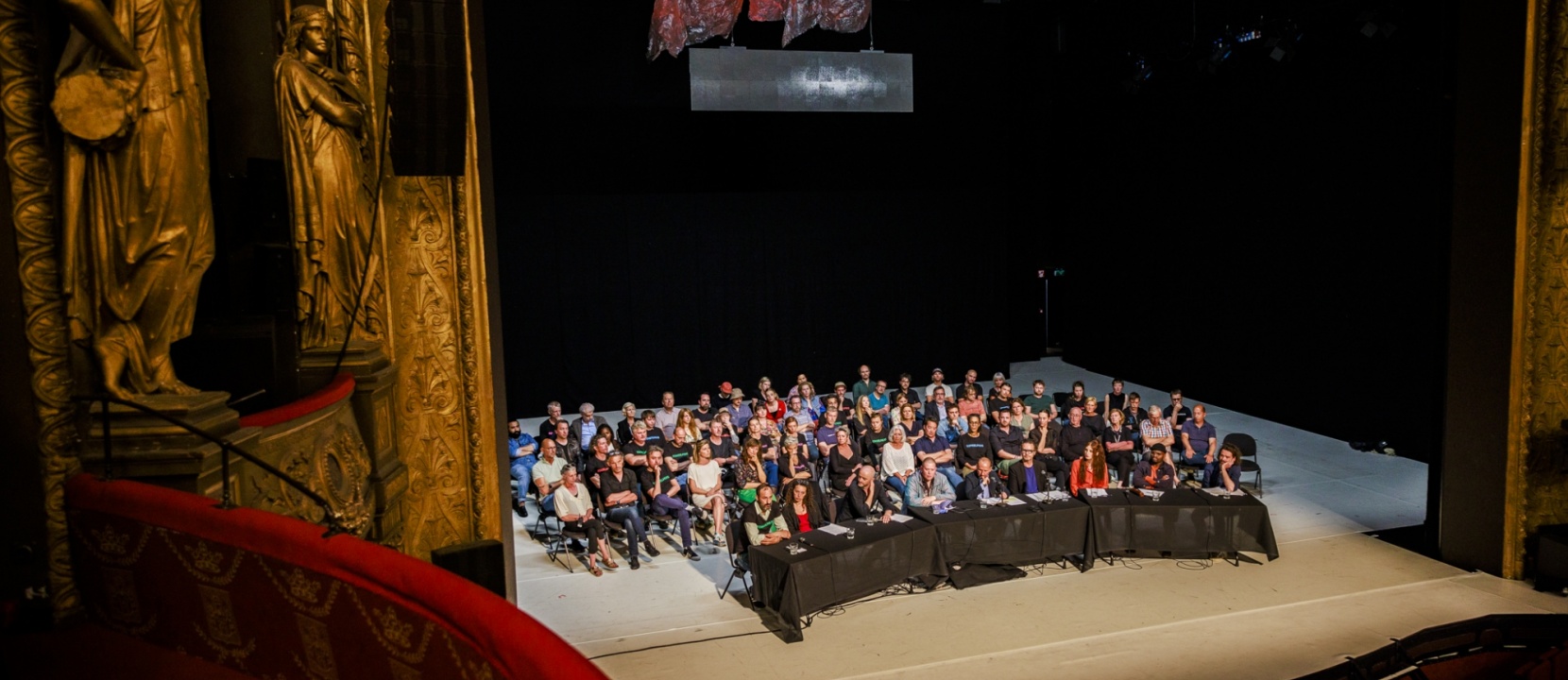Antwerp, 9 May 2022
Dear Minister of Culture,
I am writing to you directly in connection with the negative assessment that Toneelhuis received from the evaluation committee. As I am sure you will understand, the future of Toneelhuis, where I have been artistic director since 2006, lies very close to my heart. The extremely real threat of a serious reduction in the subsidies and even the possibility that there will be no more subsidies at all from the Flemish Community are a source of great concern for me.
What is impossible for me to understand is how, from one moment to the next, the biggest theatre company in Flanders can be cut back from 3.1 million euros to zero! The continued existence of Toneelhuis should not be subject to a negative assessment of an artistic and business plan for the future. My authority as artistic director ceases at the end of June, so I cannot and will not go into the plan itself here, any more than I want to examine the committee’s negative assessment. I want to tell a bigger story.
I am not asserting anything new by saying that Toneelhuis is Flanders’ largest municipal theatre company (Antwerp), where it plays in the splendid Bourla Theatre in the centre of the city. Together with my colleagues from KVS (Brussels) and NTGent (Ghent), I have spoken with you and your cabinet in recent years about the possibility of these three big municipal theatre companies being recognized as Art Institutes. Despite their differences – or better, precisely because of their differences – they are important artistic benchmarks in the Flemish theatre landscape. The status of Art Institute would make it impossible to question that position. Art Institutes should not be dealt with less critically than other organizations – on the contrary, but their continued existence within the entire field should not be made dependent upon the assessments. Their structural establishment should be guaranteed.
To this very day, Toneelhuis is an artistically successful and financially healthy organisation. The Toneelhuis model – an ensemble of very different theatre makers who work next to each other under the same roof – has developed into a unique artistic matrix that has attracted a great deal of attention and recognition in big theatre countries like France and Germany. Toneelhuis has a very strong presence in numerous theatres abroad and at international theatre festivals (including Avignon). Toneelhuis has become an international prototype.
Together with my entire team, I can look back in satisfaction. Over the years, Toneelhuis has given very diverse theatre makers the opportunity to deepen their artistic approach and find a big audience for their work. With the help of Toneelhuis, makers established themselves in Antwerp and moved on to the international scene at their own pace. Toneelhuis developed a unique advancement model that places the emphasis on guiding young makers to develop skills for working for the large stage. It gives me pleasure to see that a number of the theatre makers who reported to me are now part of the future along with the new makers.
Toneelhuis is firmly established in local, national and international networks and has the reputation of being a reliable partner that stands for quality, dialogue and open collaboration. The Bourla is an iconic performance venue for scores of young theatre makers (the Love at First Sight festival), other companies (the Antwerpse Kleppers festival, venue exchange with KVS and NTGent, collaborations with Tutti Fratelli and Behoud de Begeerte) and many musical bands. A large part of the artistic budget goes to supporting the productions of other Flemish companies and artists.
All of this has only been possible because of the professional earnestness and dedication with which the numerous employees – from the communications department to the costume studio, from the administration to the technical department, from the educational department to the box office – have always placed the focus on the theatre makers and their work. Monumental productions like JR by FC Bergman would be impossible to realize without the Herculean efforts of our set workshop, which is unique in the Benelux. A production like Angels in America by Olympique Dramatique would be inconceivable without the knowhow of our technicians. Toneelhuis succeeds again and again in getting the best custom-made results out of the most diverse artists.
Just as is the case in other countries, Flanders should not make the continued existence of large artistic institutes like Toneelhuis dependent on the assessment of a specific plan. After all, professional companies that have taken years to build up could very quickly disappear, with all of the consequences that that entails. Let us think about another means of evaluation and guarantee the survival of such institutes so that dramatic situations like this will not happen again.
Sincerely yours,
Guy Cassiers

